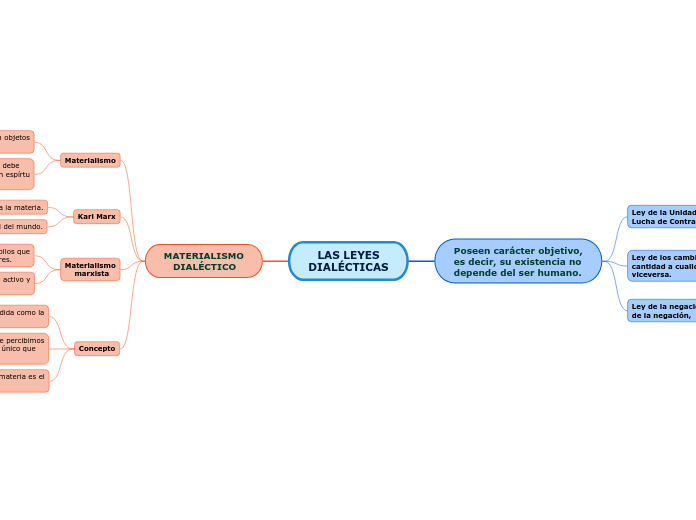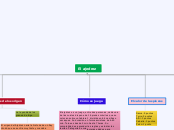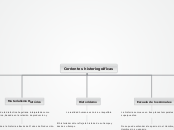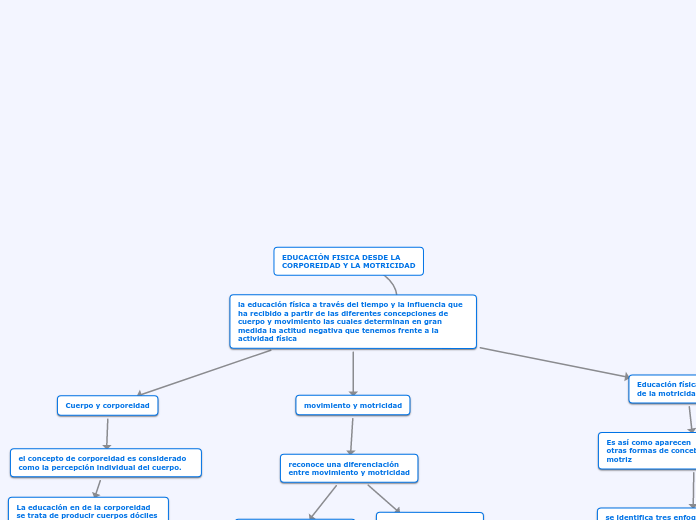LAS LEYES
DIALÉCTICAS
In physics, energy is the quantitative property that must be transferred to an object in order to perform work on, or to heat, the object. Energy is a conserved quantity; the law of conservation of energy states that energy can be converted in form, but not created or destroyed
MATERIALISMO
DIALÉCTICO
Concepto
Nuclear energy originates from the splitting of uranium atoms – a process called fission.
This generates heat to produce steam, which is used by a turbine generator to generate electricity. Because nuclear power plants do not burn fuel, they do not produce greenhouse gas emissions.
Write down the advantages and disadvantages of Nuclear Energy.
El modo de existir de la materia es el
movimiento dialéctico.
El mundo material que percibimos
con los sentidos es lo único que
existe.
Es la materia entendida como la
realidad objetiva.
Materialismo
marxista
A wind turbine, or alternatively referred to as a wind energy converter, is a device that converts the wind's kinetic energy into electrical energy.
Wind turbines are manufactured in a wide range of vertical and horizontal axis.
Write down the advantages and disadvantages of Wind turbines.
Concibe al hombre como activo y
práctico.
Siempre hay procesos y desarrollos que
llevan a superar etapas anteriores.
Karl Marx
Solar energy begins with the sun. Solar panels are used to convert light from the sun, which is composed of particles of energy called 'photons', into electricity that can be used to power electrical loads.
Write down the benefits of using solar panels.
Tenía una concepción general del mundo.
El punto de partida era la materia.
Materialismo
Hydrogen fuel is a zero-emission fuel burned with oxygen.
It can be used in fuel cells or internal combustion engines.
Name the advantages and disadvantages of Hydrogen fuel.
La evolución de la historia se debe
a causas materiales y no a un espírtu
del mundo.
Afirma que solo existen objetos
materiales.
Poseen carácter objetivo,
es decir, su existencia no
depende del ser humano.
There are many different types of energy, which all fall into two primary forms – kinetic and potential.
Energy can transform from one type to another, but it can never be destroyed or created.
Ley de la negación
de la negación,
Nuclear energy is stored in the nucleus of atoms.
This energy is released when the nuclei are combined (fusion) or split apart (fission).
Nuclear power plants split the nuclei of uranium atoms to produce electricity.
What element do they use to fuel nuclear power plants?
La negación dialéctica preside
todos los cambios de la naturaleza.
Siempre son ascendentes.
Ley de los cambios de
cantidad a cualidad y
viceversa.
Thermal energy is created from the vibration of atoms and molecules within substances. The faster they move, the more energy they possess and the hotter they become. Thermal energy is also called heat energy.
Give examples of heat energy.
El aumento o la disminución
de la cantidad de la materia
influye en la calidad. Afecta
las propiedades internas de
las cosas.
Ley de la Unidad y
Lucha de Contrarios.
Motion energy or mechanical energy is the energy stored in objects; as objects move faster, more energy is stored.
Examples of motion energy include wind, a flowing river, etc.
Give more examples.
Origen del movimiento.
La lucha de contrarios es
la esencia, el núcleo de la
dialéctica.









